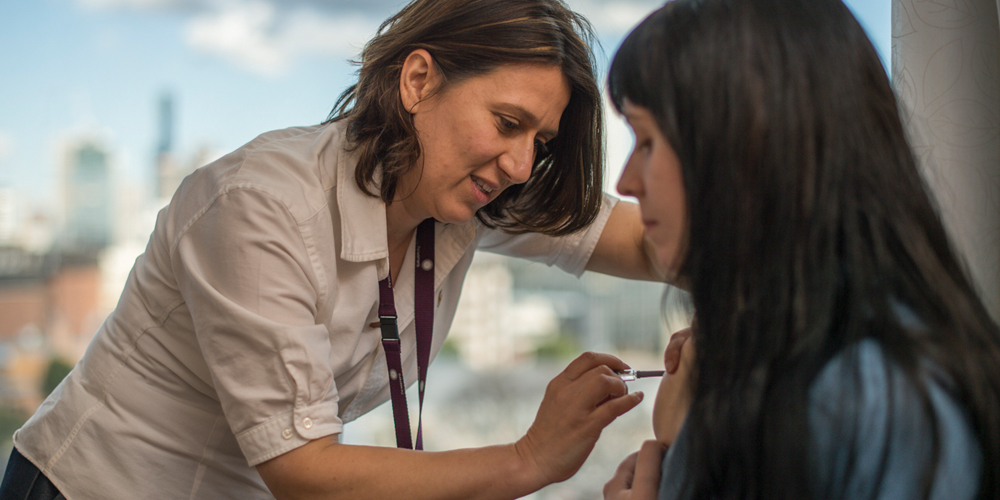
A large, global trial of a new human papillomavirus (HPV) vaccine has found it could cut the rate of cervical cancer by a further 23 per cent compared to the existing Gardasil vaccine.
Being published in the Lancet today, the global Phase 3 clinical trial involved more than 14,000 women in 18 countries, aged 16 to 26, receiving either the new vaccine or the original vaccine.
Researchers looked at the rate of pre-cancerous cell changes in the women six years later and found the new vaccine was far more effective, protecting an extra five of the most common strains of HPV.
Lead Australian author Prof Suzanne Garland, Director of the Royal Women’s Hospital Centre for Infectious Diseases said the research showed the new vaccine, known as Gardasil 9, was far more effective, preventing HPV strains that cause 93 per cent of cervical cancers compared to the 70 per cent protection provided by Gardasil.
“The eradication of cervical cancer is now firmly within our sights,” Prof Garland said. “This new vaccine protects against the same types of the virus as the existing Gardasil, plus an additional five most common strains of HPV.
“It can also protect against 90 per cent of HPV that causes vulvar, anal and vaginal cancers.
“We are eagerly awaiting the Health Minister’s decision on whether to approve the Pharmaceutical Benefits Scheme (PBS) Committee’s recommendation to change the Australian HPV vaccination program from using Gardasil to this new, more effective 9vHPV vaccine.”
The USA has already made the change to the new vaccine.
“We have had extremely high uptake of the Gardasil vaccine here in Australia which has delivered a dramatic decline in the rates of the HPV virus,” Prof Garland said. “This new vaccine offers even better coverage and we urge for it to be adopted as soon as possible.”
HPV is a group of viruses mainly transmitted through sexual contact and most people are infected with HPV shortly after the onset of sexual activity. A small number of those infected will go on to develop abnormal cells that are the precursor to cervical cancer.
The HPV vaccine, Gardasil, is provided free in schools to all males and females aged 12-13 years under the National HPV Vaccination Program.
The research was led by the University of Alabama in the USA and involved a global collaboration across four continents.
Background notes:
Human papillomavirus (HPV) is a group of viruses that are extremely common worldwide.
There are more than 100 types of HPV, of which at least 13 are cancer-causing (also known as high risk type).
Cervical cancer is caused by sexually acquired infection with certain types of HPV.
There is also evidence linking HPV with cancers of the anus, vulva, vagina and penis.
Cervical cancer is the second most common cancer in women living in less developed regions with an estimated 445,000 new cases in 2012 (84% of the new cases worldwide).
In 2012, approximately 270,000 women died from cervical cancer; more than 85 per cent of these deaths occurring in low- and middle-income countries.
Vaccines against HPV 16 and 18 have been approved for use in many countries.
Source: World Health Organisation
The study was sponsored and funded by Merck & Co., Inc. which manufactures the qHPV (Gardasil) and 9vHPV (Gardasil 9) vaccines.